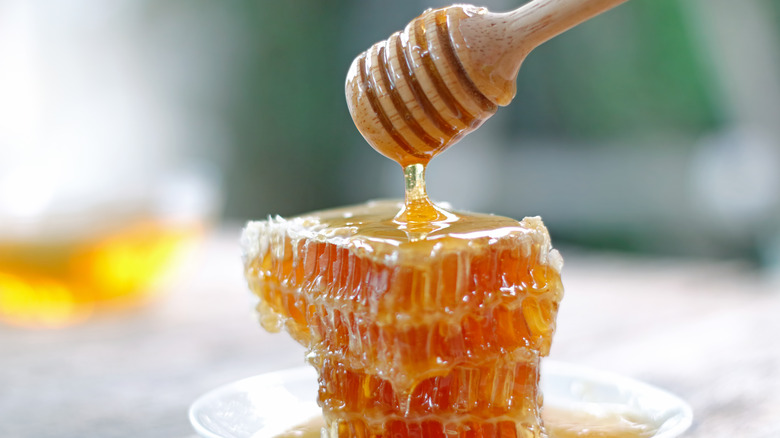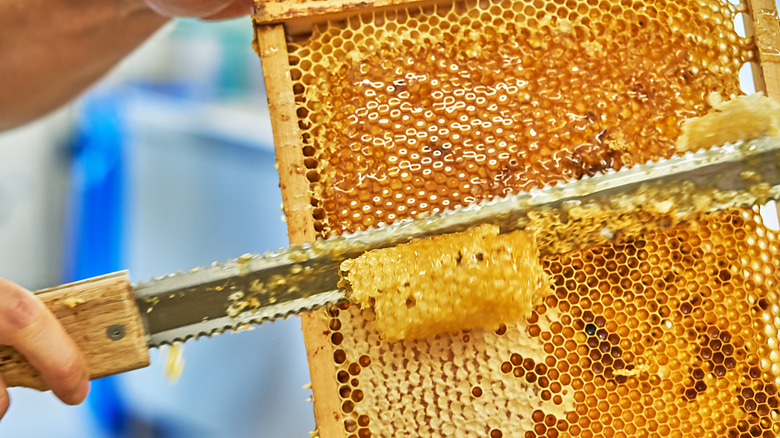What Exactly Is Raw Honey?
If you've seen the term raw honey at the supermarket, it may seem a little confusing — after all, all honey is raw, right? However, it differs from what we call regular honey in some key ways, and those differences mean it has a slightly different nutritional profile (more on that later).
Raw honey comes straight from the beehive, without any processing. It's honey in its rawest form. This contrasts with regular honey, which can be processed in a few ways. Firstly, regular honey tends to be pasteurized, meaning it's heated to around 145 degrees Fahrenheit and rapidly cooled. This is mostly done as an aesthetic treatment, preventing the honey from solidifying and crystallizing. Unlike with dairy products like raw milk which are dangerous when unpasteurized, it isn't a process that's necessary for food safety (and honey actually doesn't really expire at all).
On top of that, regular honey is usually finely filtered, which removes any pollen from it. Raw honey may be lightly filtered, but mostly to get pieces of things like honeycomb out of it. Finally, regular, processed honey may also be padded out with extra ingredients like sugar or corn syrup, as this allows it to be sold for cheaper than somewhat expensive-to-produce honey. As a result, you may also encounter the term pure honey — this may be pasteurized and filtered, so it isn't raw, but also doesn't have additives. Other terms like manuka or acacia honey are more about the flowers that the bees feed on, so those are different from raw and processed honeys.
Is raw honey better for you?
There's a lot of talk out there about how raw honey is more nutritious than its regular, processed counterpart. There is some truth to this, although it's not quite a magic cure for ailments like allergies, as some may claim. A key benefit of raw honey is the antioxidants it contains. Antioxidants (also found in a lot of berries, beans, and even cocoa) help control compounds that are linked to conditions like heart disease and diabetes. Heat can eliminate these antioxidants, so processed honey loses some of them when it's pasteurized. However, depending on the level of processing, you may still find decent levels of antioxidants in non-raw honeys — there's not a lot of research comparing the two honey types when it comes to nutrition.
The pollen in raw honey may also have health benefits, which studies have suggested has anti-inflammatory and anti-bacterial effects, although some experts warn that the research into the positives of bee pollen isn't very conclusive. Again, processed honey lacks this pollen as it's filtered out in the production process. This means that raw honey could theoretically be used not just as a food, but as a topical treatment, although this isn't advisable with store-bought products as it's hard to know exactly how sterile they are. Raw honey also contains an array of vitamins, minerals, and amino acids, but only in very small amounts, so any potential benefits may be quite limited.

